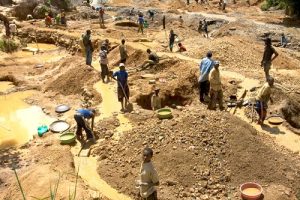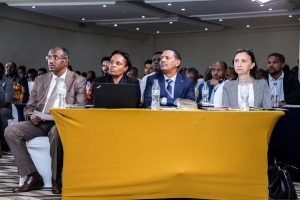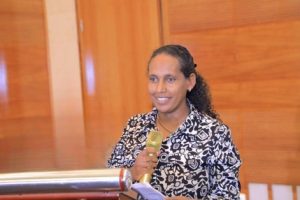Inger Andersen is the executive director of the United Nations Environment Programme while Sir Robert Watson is former chair of the Intergovernmental Science-Policy Platform for Biodiversity and Ecosystem Services. They commonly shared the following views with The Independent.
The just-released Dasgupta Review on the Economics of Biodiversity, for all of its complexity, delivers one simple message: we must change our relationship with the natural world, which makes human prosperity and wellbeing possible, or destroy our future.
Yes, you have probably heard this before. But what makes the message so striking now is that it comes from an independent review commissioned by HM Treasury – the economic and financial heart of the UK government. And when those charged with overseeing finance and economy tell us to value nature, or face ruin, it is high time that everyone listens.
Nature, as the review finds, is an asset, just like roads, buildings and factories – known as produced capital – and just like health, knowledge and skills – known as human capital. Nature provides so much more beyond the basic resources of food and materials. It filters water. It regulates the climate. It provides inspiration and learning, physical and psychological experiences.
Humanity has failed to manage this asset sustainably, eating into nature faster than it can regenerate. For example, according to the Global Footprint Network, we currently need 1.6 Earths to maintain the world’s current population and living standards, both of which are rising.
As a result of our unsustainable consumption and production, one million species face extinction. Many ecosystems, from tropical forests to coral reefs, face tipping points that could have catastrophic consequences for humanity. And of course, Covid-19 – with pandemics having been closely linked to the destruction of wild spaces – caused not just death and illness, but global economic devastation.
The Dasgupta review tells us that a deep-rooted institutional failure lies at the heart of the problem: the true value of the goods and services nature provides are not reflected in market prices. The starting point to fix this error is to ensure that nature enters economic and financial decision-making in the same way as buildings, machines, roads and skills.
We are not talking about putting a price tag on every bee and tree, or commodifying nature. We are talking about the exact opposite: understanding that intact ecosystems are often worth more to humanity than when they are broken down into their constituent parts,
never to be reassembled. Nature is our most precious asset, so let us treat it as such.
Balance sheets should not just include what a government or business can gain by exploiting or replacing nature. They should also include what they will lose. We already have figures that show this at an economy-wide level. Estimates from the United Nations Environment Programme show that since the early 1990s, produced capital per person doubled, and human capital per person increased by about 13 per cent.
This sounds rosy until you find out that the stock of natural capital per person declined by nearly 40 per cent. As the review says, we have failed to manage our assets and we must do better.
The only way to get on the right track is to move away from gross domestic product as an indicator of sustainable prosperity – to an indicator of inclusive wealth that measures all forms of capital.
This is the starting point, from which all other actions recommended in the review flow: moving to sustainable food production systems, decarbonizing our energy system, creating policies that jump-start the circular economy, expanding and improving the management of protected areas, deploying nature-based solutions at scale and so much more.
Protecting biodiversity and nature is not the preserve of environmentalists. It is an economic issue. It is a financial issue. It is a whole-of-society issue. It is the only way to ensure food, water, shelter, health and prosperity for all of humanity, now and in the future.
Conserving and restoring our natural resources will sustain and enhance their supply. Therefore, it is vital that we invest in the conservation and restoration of nature.
This means that governments, businesses and financial institutions must urgently deploy inclusive wealth accounting measures. It means that governments must invest in natural capital as part of recovery packages in the wake of Covid-19.
It means that when the world agrees on a new framework to manage biodiversity in Kunming, China, later this year, we need to move beyond environmental specialists and include every government ministry, business, investor and individual in its implementation.
Now that HM Treasury has the results of the review it commissioned, the UK government – and governments across the world – must pull out all of the stops to recognize the true value of nature in decision-making.
This is the key to making the right investment decisions and protecting the many benefits nature delivers to humanity. As Professor Partha Dasgupta says in the review, we and our descendants deserve nothing less.
Source: https://www.independent.co.uk/
The Ethiopian Herald February 7/2021





